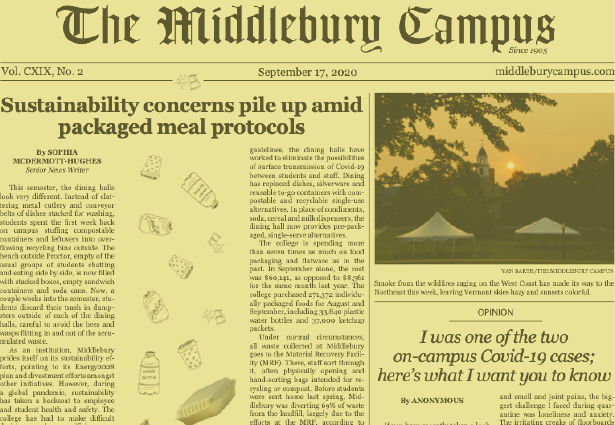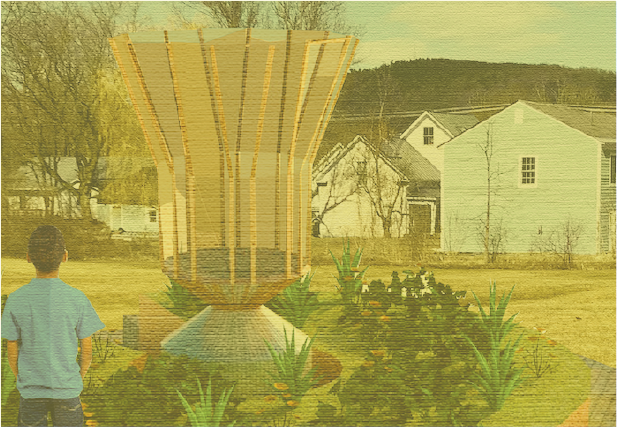
This monument functions as a recognition of the Indigenous Abenaki community within Vermont and aims to shed light on Middlebury’s colonial past and present. The monument embodies the idea of universal inclusivity: the concept that humans are
only one part of a larger system by creating a rainwater system
to water a garden composed of the Seven Sisters of Abenaki Indigenous Agriculture. It exists as a space for students and the Middlebury neighborhood, including Abenaki members of the community, to come together for leisure and cultivation.

The structure emulates the Seven Sisters in the way they support one another to thrive. I created a system of parts that work together to create this functioning living monument. It consists of a mesh netting that captures water droplets; framing that provides structural support; a funnel that collects direct rainwater, water droplets from the mesh and serves as a dew conductor; a tank to store the harvested water channeled from the funnel and an irrigation system below to distribute the water when needed.
The monument will use corrugated metal and other non-rotting materials for the tank and framing to protect the water; however, the seating area around the structure will be made of a weathering wood that adapts to the environment over time. All of these ideas are preliminary. I wanted to stray away from incorporating any more Indigenous symbolism, aesthetics, or forms into the sculpture because if it were to be built, I would like it to be a collaborative process with the Abenaki community of Vermont.




